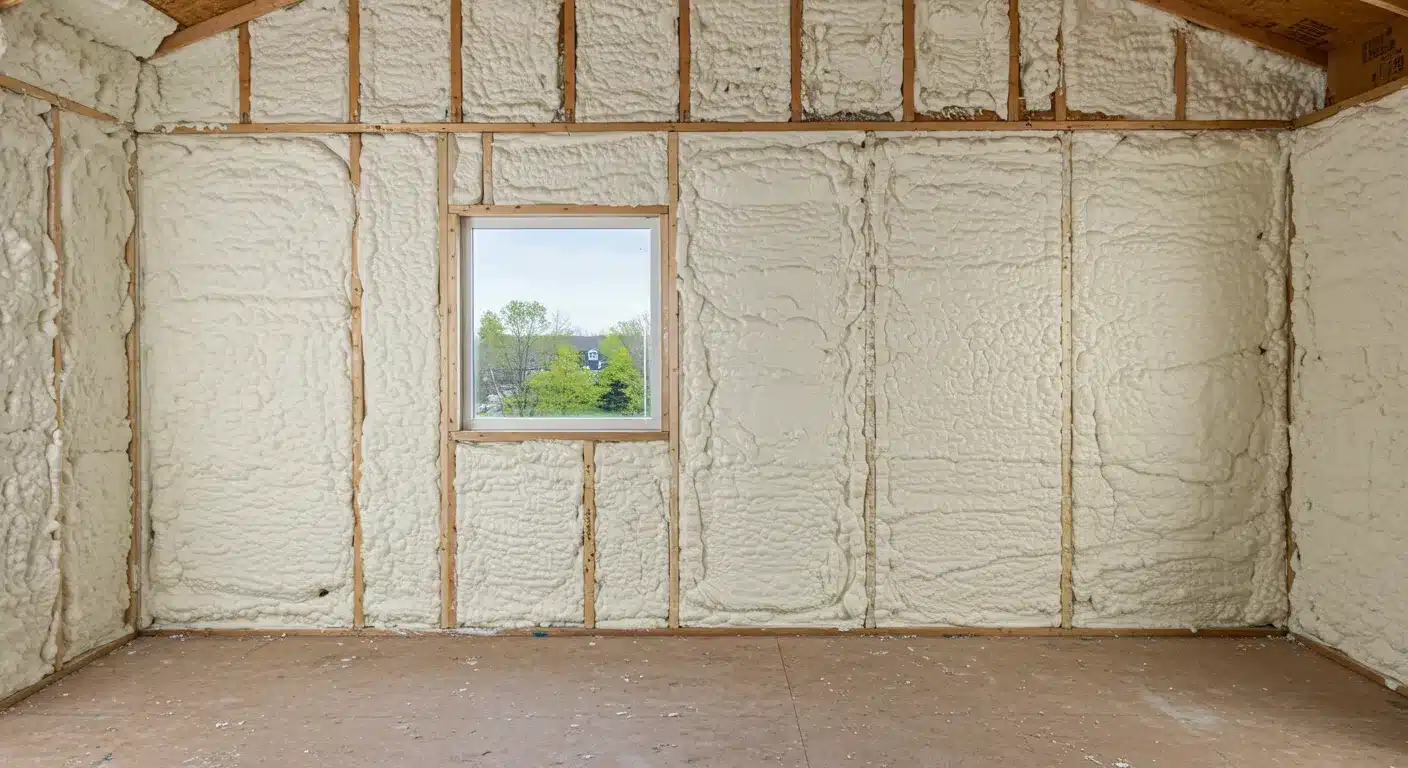Spray foam insulation has gained attention for its energy-saving properties and long-term durability. Unlike traditional materials like fiberglass or cellulose, it expands upon application, sealing gaps and reducing heat loss. Homeowners and businesses looking for efficient insulation solutions often consider spray foam due to its airtight sealing capabilities and moisture resistance.
Why Insulation Matters in 2025
With rising energy costs and increased environmental awareness, choosing the right insulation is more important than ever. Buildings lose a significant amount of energy through poorly insulated walls, attics, and crawl spaces. Spray foam insulation offers a modern solution by enhancing thermal efficiency, reducing carbon footprints, and improving indoor comfort.
Types of Spray Foam Insulation
Open-Cell Spray Foam
- Lightweight and flexible
- Provides soundproofing benefits
- More affordable than closed-cell foam
- Best for interior applications like walls and ceilings
Closed-Cell Spray Foam
- Dense and rigid structure
- High R-value (thermal resistance)
- Excellent moisture barrier
- Suitable for exterior walls, basements, and high-humidity areas
Energy Efficiency and Cost Savings
One of the main reasons homeowners invest in spray foam insulation is energy efficiency. By minimizing air leakage, it helps maintain consistent indoor temperatures, reducing the strain on heating and cooling systems. This leads to lower energy bills and long-term savings. In many cases, spray foam can cut energy costs by up to 30% compared to traditional insulation methods.
Longevity and Durability
Unlike fiberglass, which can sag over time, spray foam remains intact for decades. It does not degrade, absorb water, or provide a breeding ground for mold or pests. This durability makes it a cost-effective option, as it eliminates the need for frequent replacements or maintenance.
Environmental Impact
With a growing focus on sustainability, many homeowners seek eco-friendly building materials. Spray foam insulation contributes to reduced energy consumption, which lowers greenhouse gas emissions. Some formulations now incorporate renewable materials or reduced volatile organic compounds (VOCs), making them safer for indoor air quality.
Enhancing Home Comfort and Air Quality
Beyond energy efficiency, spray foam insulation improves indoor air quality by sealing out dust, allergens, and pollutants. By preventing drafts and cold spots, it creates a more comfortable living environment year-round.
Eliminating Air Leaks
Gaps and cracks in walls and attics allow unwanted airflow, leading to inconsistent temperatures. Spray foam expands to fill these spaces, preventing conditioned air from escaping and outdoor air from entering.
Moisture and Mold Prevention
Moisture buildup can lead to mold growth, which poses health risks and structural damage. Closed-cell spray foam acts as a vapor barrier, reducing humidity levels and preventing mold from developing inside walls.
A Smart Investment for New and Existing Homes
New Construction
For those building new homes, incorporating spray foam insulation from the start ensures superior energy performance. It allows for efficient HVAC sizing and reduces the likelihood of future insulation upgrades.
Retrofitting Older Homes
Older homes often lack sufficient insulation. Retrofitting with spray foam can significantly improve thermal performance without requiring extensive renovations. It can be applied in attics, crawl spaces, and walls to enhance overall energy efficiency.
Considerations Before Choosing Spray Foam
While spray foam insulation offers many advantages, there are key factors to consider before making a decision.
Installation Requirements
Professional installation is recommended due to the precise application process. Improper mixing or spraying can affect performance and longevity.
Initial Cost vs. Long-Term Savings
The upfront cost of spray foam is higher than traditional insulation. However, the energy savings and durability often justify the investment over time.
Material Safety and Ventilation
During application, proper ventilation is essential to avoid exposure to chemical fumes. Once cured, spray foam is safe and does not emit harmful gases.
Get Expert Guidance for Your Insulation Needs
Choosing the right insulation for your home or business is a significant decision. Prestige Insulation Solutions provides professional consultation and installation services tailored to your specific needs. Contact us at (850) 429-4969 or email [email protected] to learn how spray foam insulation can benefit your property.
FAQs
How much does spray foam insulation cost?
The cost varies depending on the type (open-cell or closed-cell), the area to be covered, and labor charges. On average, homeowners can expect to pay between $1.50 to $3.00 per square foot.
Is spray foam better than fiberglass insulation?
Spray foam offers superior sealing, higher R-values, and greater durability compared to fiberglass. It provides better air and moisture resistance, making it a preferred choice for long-term efficiency.
How long does spray foam insulation last?
When properly installed, spray foam insulation can last over 30 years without significant degradation.
Can I install spray foam insulation myself?
DIY kits are available, but professional installation ensures proper application, coverage, and safety compliance.
Does spray foam insulation improve home resale value?
Yes, energy-efficient upgrades, including spray foam insulation, can increase a home’s market value and appeal to potential buyers.
Will spray foam insulation help with soundproofing?
Open-cell spray foam provides sound-dampening properties, reducing noise transmission between rooms and from external sources.
Is spray foam insulation fire-resistant?
Spray foam insulation is treated with fire retardants to meet safety standards, but it should not be considered a fireproof material.
Can spray foam insulation be used in basements?
Yes, closed-cell spray foam is ideal for basements due to its moisture-resistant properties.
How soon can I occupy my home after installation?
Ventilation is required for 24-48 hours after installation to allow the foam to cure completely.
Will spray foam insulation prevent ice dams?
By sealing air leaks and improving attic insulation, spray foam helps prevent ice dam formation on roofs.



